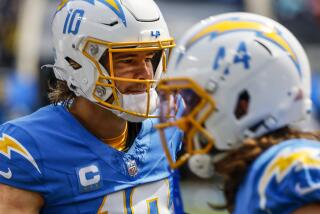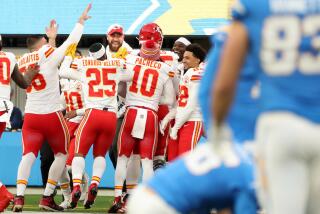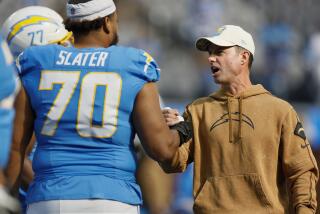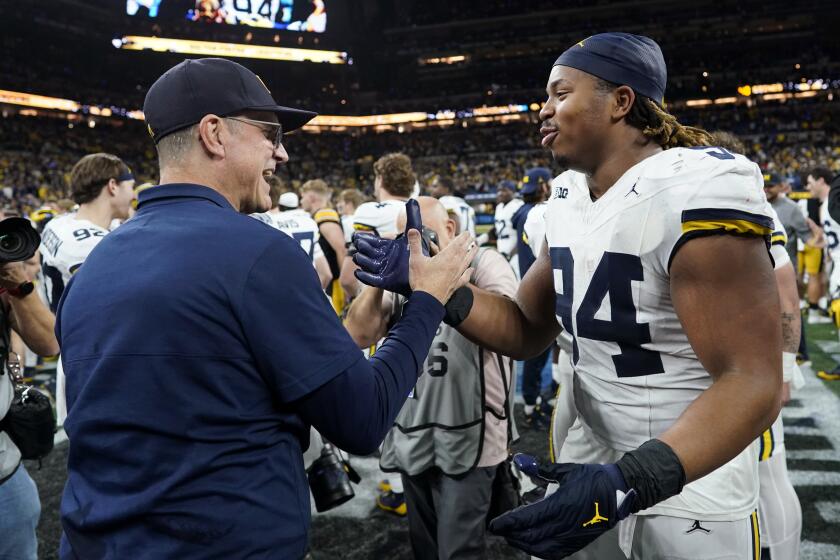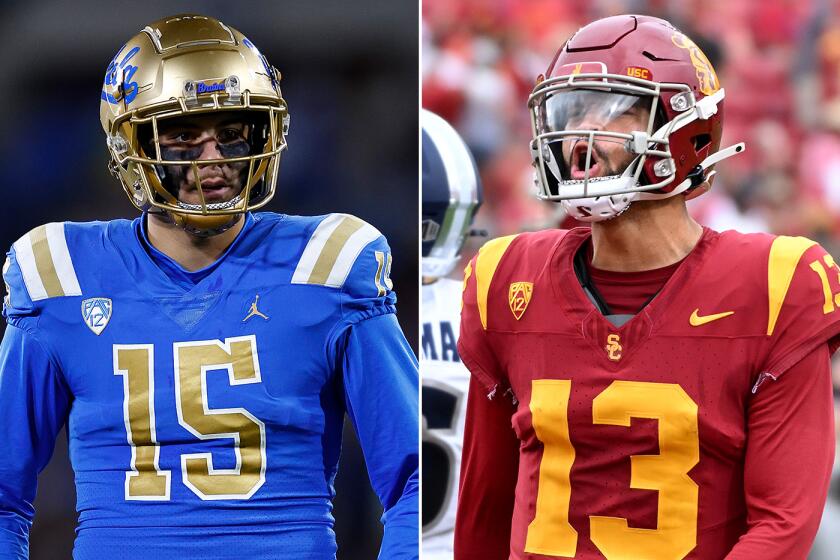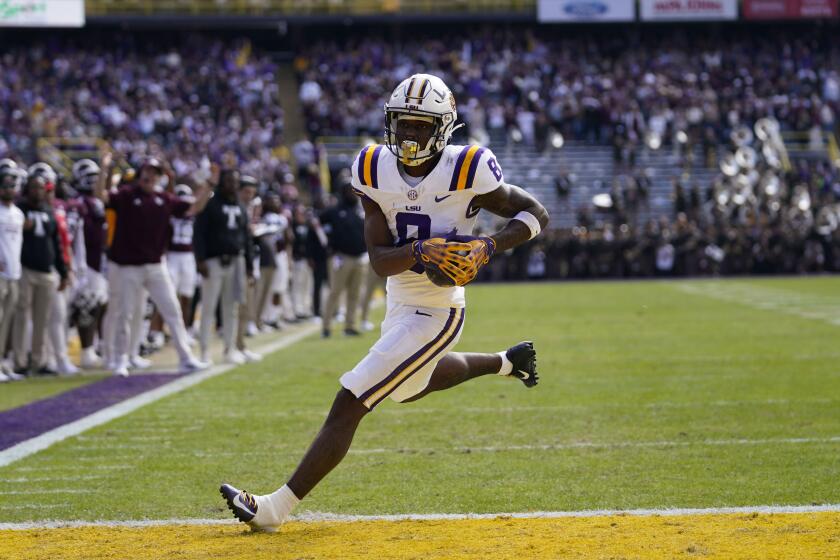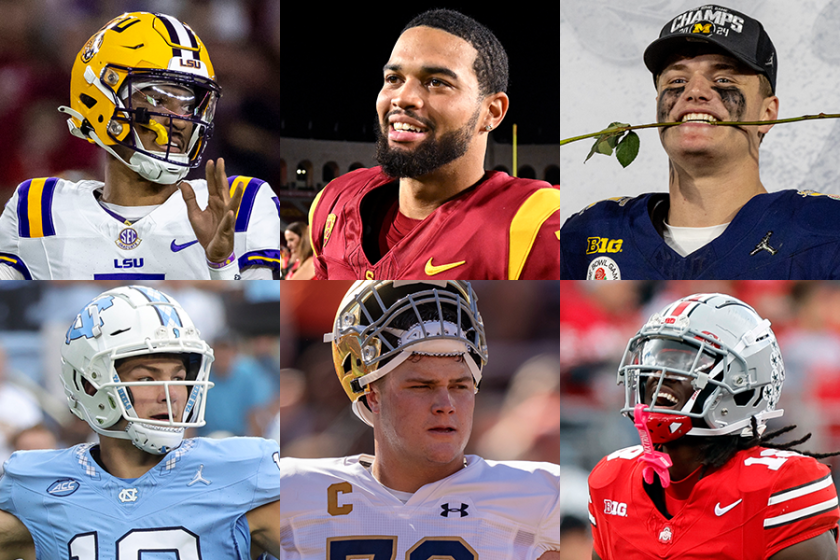Chargers have made their run in AFC West with the pass, and Redskins are next on flight plan
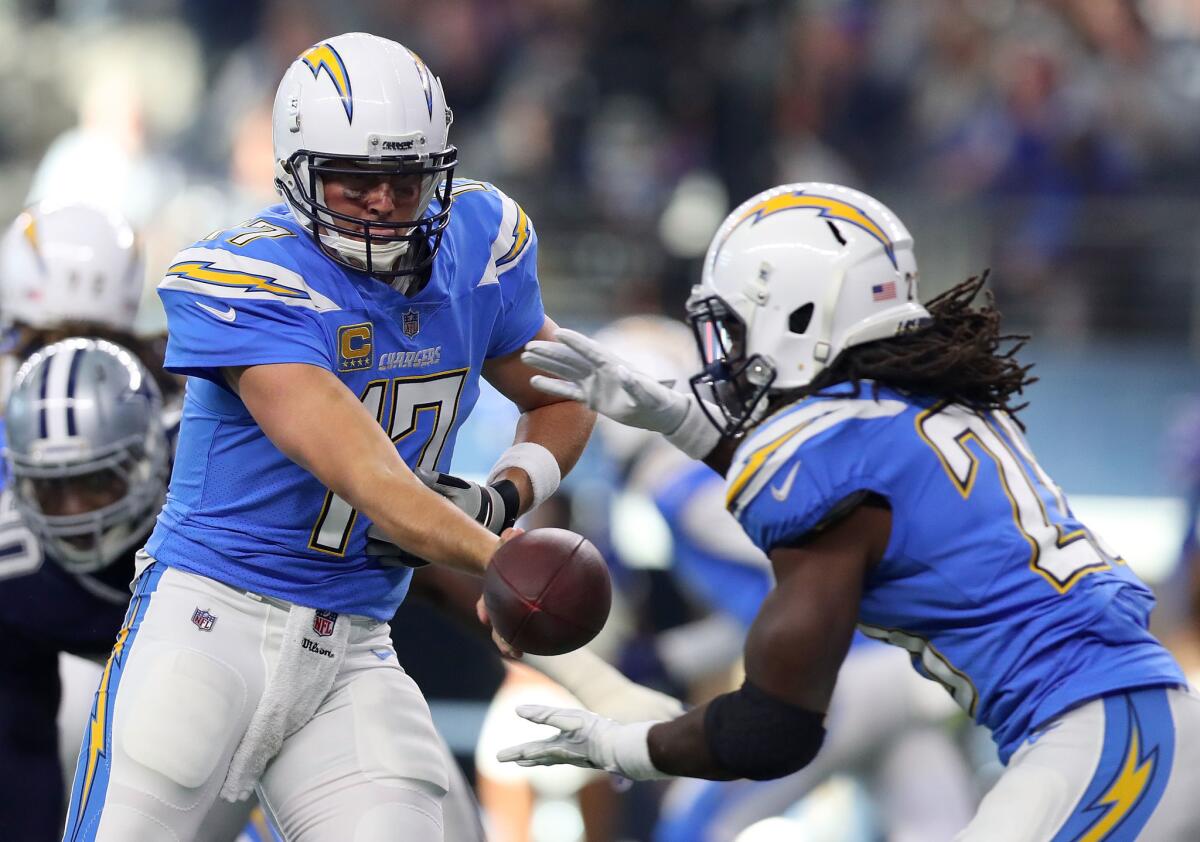
The question to running back Melvin Gordon seemed straightforward. Did the Chargers under first-year coach Anthony Lynn, try to force the run a little too much earlier this season?
The answer zigzagged like a meandering mountain stream.
“Uh, probably … um … not really,” Gordon said. “Actually, I don’t know, maybe.”
Yeah, it’s complicated.
Lynn, a running backs coach for 14 of his 17 years as an NFL assistant, came to the Chargers preaching the importance of the run. He knew he had a gunslinger of a quarterback in veteran Philip Rivers, but he also had a workhorse of a runner in Gordon and the makings of an improved offensive line.
“The last couple of years, we’ve been at the bottom [of league rankings] in rushing and way up high in passing,” Rivers said. “So I think the biggest thing coach Lynn wanted was to see those two numbers come together a little more.”
Twelve games in, those two numbers couldn’t be much farther apart. The Chargers rank second in the NFL in passing (269.8 yards a game) and 26th in rushing (93.3) entering Sunday’s game against the Washington Redskins.
Rivers has been especially effective in the last three games, completing 78 of 108 attempts for 1,029 yards and six touchdowns — with no interceptions and two sacks — in wins over Buffalo, Dallas and Cleveland.
The offense was a bit stagnant during a season-opening four-game losing streak in which the Chargers rushed 75 times for 268 yards, an average of 3.6 yards a carry. Of 48 first-down runs in those games, 29 went for two yards or less. In a Week 4 loss to Philadelphia, the Chargers netted four yards on eight first-down runs.
The Chargers did not abandon the run, but they took more of an aerial route while winning six of their next eight games to move into a first-place tie with Kansas City and Oakland in the AFC West.
“We’ve been a pass-first team all year; we’re just doing a better job of it,” Lynn said. “We’re getting the ball to playmakers and executing. The pass protection up front has been outstanding. We’re keeping Philip on two feet, keeping him clean.
“He’s doing a nice job delivering the ball, with no turnovers the last three weeks, knock on wood. Having Keenan [Allen, the team’s top receiver] for a whole season has helped. I think we’re just executing better and finding out what we do best.”
Has Lynn, whose Bills team led the NFL in rushing last season, forsaken the run?
“I think it’s a Catch-22,” Lynn said. “You get a quarterback like Philip, who can distribute the ball through the air and move it down the field, there’s a tendency to just stay with that. But any coach in this league will tell you, you have to have balance. If you’re that predictable, eventually, they’ll shut you down.”
If there was friction between a new run-oriented coach, a third-year offensive coordinator in Ken Whisenhunt and a quarterback used to flinging the ball all over the field, the Chargers hid it well. But Rivers did acknowledge that the team struggled to find a good balance between run and pass in the first four games.
“Yeah, I think that’s fair to say,” said Rivers, who turned 36 Friday. “We were all pulling the rope in the same direction, but I think you’re still learning each other, figuring each other out.”
The season turned with a Week 5 victory over the New York Giants in which Gordon rushed 20 times for 105 yards and caught six passes for 58 yards and two touchdowns.
Though the Chargers rushed 25 times or more in six of their next seven games, they mixed in more play-action passes and down-field throws on first down. There were more check-downs and screens to Gordon and Austin Ekeler, using the short pass as an extension of the run game.
In his last three games, Rivers completed 10 of 12 first-down passes for 123 yards against Buffalo, seven of 10 first-down passes for 98 yards against Dallas and 11 of 16 first-down passes for 121 yards against Cleveland.
Bigger first-down gains led to more manageable second- and third-down plays. The Chargers, who converted only 38 of 112 third downs (33.9%) in their first nine games, converted 24 of 43 third downs (55.8%) in their last three.
Allen, who missed virtually all of 2016 because of knee surgery, ranks fifth in the NFL with 1,032 receiving yards on 77 catches. He’s been unstoppable in the last three games, with 33 catches for 436 yards and four touchdowns.
Second-year tight end Hunter Henry, a non-factor in three of the first four games, has been more of a target, with 38 catches for 501 yards and three scores on the season. Tyrell Williams (28 catches for 448 yards) and Travis Benjamin (27 catches for 443 yards) have been deep threats.
“We’ve kind of hit our stride of late,” Rivers said. “We’ve been more efficient. I’ve thrown more completions, and we’re better on third down. It’s a balance. It’s not trying to pound our way early. Let’s just play with a nice, balanced mix, take what they give us and let these little completions, these dinks and dunks, be our runs.”
An efficient passing game has opened up more running room for Gordon, who rushed 20 times for 80 yards against Buffalo, 21 times for 65 yards against Dallas and 19 times for 77 yards against Cleveland.
Not the huge games Gordon envisions, but much better than his 13, 22, 38 and 27 rushing yards in four of the first nine games.
“At times, you want to get frustrated. When I get discouraged a little bit and get upset, I tell myself we’re winning,” said Gordon, a third-year pro out of Wisconsin. “We’re finding some things we’re good at and sticking to it.
“My time will come when I get to do my thing and they rely on me. Until then, we need to keep racking up wins. That gets me focused. When I want to go into that cave, that little hole, I just think about these wins we’ve been collecting. That’s a better feeling than individual goals or anything like that.”
Follow Mike DiGiovanna on Twitter @MikeDiGiovanna
More to Read
Go beyond the scoreboard
Get the latest on L.A.'s teams in the daily Sports Report newsletter.
You may occasionally receive promotional content from the Los Angeles Times.

